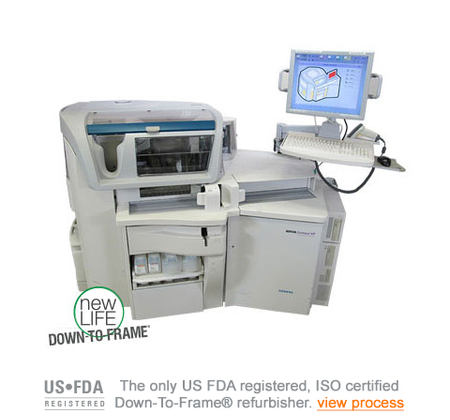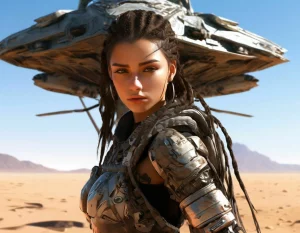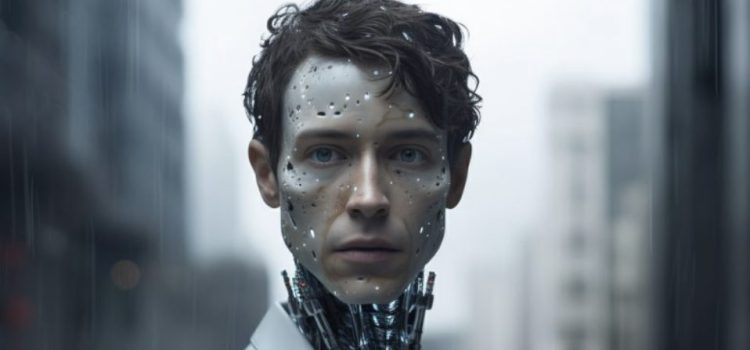
Introduction
The film industry has always been at the forefront of adopting new technologies to captivate audiences and enhance storytelling. One of the latest advancements making waves is the integration of Artificial Intelligence (AI) in the creation and optimization of film trailers. AI film trailers are not just a futuristic concept but a present reality, revolutionizing the way movies are marketed and consumed.
The Evolution of Film Trailers

-
Traditional Methods
Traditionally, film trailers were crafted by skilled editors who meticulously sifted through hours of footage to create a compelling narrative that would entice audiences. This labor intensive process involved selecting the best scenes, syncing them with music, and ensuring the trailer conveyed the essence of the film without giving too much away.
-
The Advent of AI
With the advent of AI, this process has become significantly more efficient and data-driven. AI film trailers leverage machine learning algorithms, natural language processing, and computer vision to analyze vast amounts of data and create trailers that are not only engaging but also tailored to specific audiences.
AI and Film Trailer Production: A Match Made in Innovation
Film trailers have traditionally been crafted by human editors and marketing teams who rely on creative instinct and audience insights. However, with the rise of AI, these processes are evolving into more data-driven practices. AI algorithms can analyze vast amounts of data, including viewer preferences, emotional responses, and even the success of previous trailers, to assist in crafting compelling trailers that resonate with target audiences. By incorporating machine learning models, studios can produce trailers that are not only engaging but also tailored to specific demographics or platforms.
In 2016, IBM’s AI system, Watson, was used to create a trailer for the movie Morgan. Watson analyzed the entire film, identified key moments, and generated a list of scenes that would be most appealing to potential viewers. This was one of the first instances of AI playing a direct role in trailer production, setting the stage for further advancements in the field.
How AI Enhances Film Trailers

-
Data-Driven Insights
AI can analyze audience preferences, viewing habits, and social media trends to determine what elements are likely to resonate with viewers. This data-driven approach allows for the creation of trailers that are more likely to capture the audience’s attention and generate interest in the film.
-
Automated Editing
One of the most significant advantages of AI in film trailers is automated editing. AI algorithms can quickly identify key scenes, emotional peaks, and visually stunning moments in a film. This capability reduces the time and effort required to create a trailer, allowing for faster turnaround times and more frequent updates.
-
Personalization
AI enables the creation of personalized trailers tailored to different audience segments. For example, a horror film might have multiple trailers, each emphasizing different aspects of the movie based on the preferences of various demographic groups. This level of personalization can lead to higher engagement and better conversion rates.
-
Predictive Analytics
AI can predict the success of a trailer by analyzing historical data and comparing it with current trends. This predictive capability allows studios to make data-driven decisions about which trailers to release and when, optimizing marketing strategies and maximizing returns on investment.
Faster Trailer Creation
Creating a trailer manually can take a long time. Editors sift through hours of footage to find the best scenes. AI speeds this up by quickly analyzing the entire movie and selecting key moments. AI systems can even identify the tone and mood of scenes, helping to create trailers that fit the film’s emotional arc. This leads to a more efficient production process and faster results.
Personalized Trailers for Different Audiences
One of the biggest benefits of AI in trailers is the ability to personalize them for different audiences. AI can create multiple versions of a trailer, each tailored to a specific group of viewers. For example, a trailer for a horror film might be cut differently for teenagers than for adults. AI can even adapt trailers to match regional preferences, ensuring that international audiences see content that resonates with them.
AI Helps Make Trailers More Appealing
AI doesn’t just make trailers faster to produce; it also makes them more appealing to audiences. By using AI, film studios can predict which parts of a movie viewers will enjoy the most. AI can analyze the success of previous trailers and learn from them. This means studios can create trailers that include the scenes, actors, and themes that audiences are most likely to love.
AI Allows for Customized Trailers
One of the best things about AI is how it can make trailers more personalized. Instead of creating one trailer for everyone, AI allows studios to make different trailers for different people. For example, a person who loves action scenes might see a trailer with more exciting moments, while someone who enjoys romance might get a version with more emotional scenes. This kind of customization helps reach more viewers and makes the trailers feel more personal.
Case Studies

-
IBM Watson and Morgan
One of the most notable examples of AI in film trailers is IBM Watson’s collaboration with 20th Century Fox for the movie Morgan. IBM Watson analyzed hundreds of horror film trailers to identify common patterns and elements that made them successful. The AI then selected scenes from Morgan and suggested a sequence that would likely appeal to horror fans. The result was a trailer that was both engaging and effective, demonstrating the potential of AI in this field.
-
Netflix and AI-Generated Thumbnails
While not a traditional trailer, Netflix’s use of AI to generate personalized thumbnails for its content is worth mentioning. By analyzing viewer preferences and behavior, Netflix’s AI creates custom thumbnails that are more likely to attract individual users. This approach has significantly increased click-through rates and viewer engagement, showcasing the power of AI-driven personalization.
Boosting Engagement with AI
Trailers that are more personalized and data-driven tend to attract more views and shares. AI helps create trailers that connect with viewers on a deeper level. By studying audience preferences, AI can highlight actors, scenes, or themes that are most likely to catch people’s attention. This increases engagement and excitement for the film.
Ethical Concerns and Creativity
While AI makes trailer creation easier, it also raises concerns. Some worry that AI might take away from the human creativity that makes trailers unique. There’s also the question of data privacy. AI uses information from social media and other platforms to personalize trailers, which can lead to concerns about how personal data is used. It’s important to find a balance between AI’s benefits and protecting creativity and privacy.
Challenges and Ethical Considerations

-
Quality Control
While AI can significantly enhance the efficiency and effectiveness of film trailer creation, it is not without its challenges. Ensuring the quality and coherence of AI-generated trailers is crucial, as poorly edited or misleading trailers can harm a film’s reputation.
-
Ethical Concerns
The use of AI in film trailers also raises ethical concerns, particularly around data privacy and manipulation. Studios must be transparent about how they use data and ensure that AI-driven marketing practices do not infringe on user privacy or manipulate audiences in unethical ways.
The Future of AI Film Trailers

-
Continued Advancements
As AI technology continues to evolve, we can expect even more sophisticated and creative applications in the realm of film trailers. Advances in deep learning, computer vision, and natural language processing will further enhance the capabilities of AI, leading to trailers that are not only more engaging but also more immersive and interactive.
-
Integration with Virtual Reality (VR) and Augmented Reality (AR)
The integration of AI with VR and AR technologies could revolutionize the way audiences experience film trailers. Imagine a trailer that adapts in real-time based on the viewer’s reactions or an AR experience that allows users to explore scenes from the movie in their environment. These possibilities are not far off and could redefine the future of film marketing.
Analysis Table
| Aspect | Traditional Trailer Production | AI-Driven Trailer Production |
| Time Efficiency | Time-consuming, requires manual editing | Faster, automated scene selection |
| Personalization | Limited to broad demographics | Highly personalized, tailored for individual preferences |
| Data Utilization | Relies on audience research and instinct | Leverages big data and predictive analytics |
| Creativity | Entirely human-driven | AI assists but may raise concerns about creativity loss |
| Cost | Higher due to manual processes | Lower due to automation and scalability |
| Audience Engagement | Varies based on creativity | Higher engagement due to targeted content |
Comparative Table: Traditional vs. AI Film Trailers
| Feature | Traditional Film Trailers | AI Film Trailers |
| Production Speed | Slower | Faster, automated processes |
| Audience Targeting | Generic targeting | Specific, data-driven targeting |
| Creative Input | Human creativity | AI-driven with creative support |
| Cost-Effectiveness | Higher production costs | Lower production costs due to automation |
| Real-Time Adaptation | Not possible | Possible with real-time data |
Conclusion
AI film trailers represent a significant leap forward in the way movies are marketed and consumed. By leveraging data-driven insights, automated editing, personalization, and predictive analytics, AI is transforming the creation and optimization of film trailers. While challenges and ethical considerations remain, the potential benefits of AI in this field are immense. As technology continues to advance, we can look forward to even more innovative and engaging film trailers that captivate audiences and drive the success of movies.










